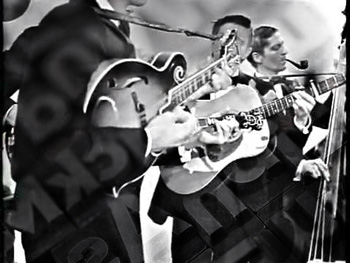The machine engulfed Travis, but he didn’t seem to mind. Travis chain-smoked unfiltered Camels; and one was always burning at his side as he pressed the buttoned keys for all the letters to appear, just as I had originally typed them. Sometimes, yes, he made mistakes but not often. And anyway, when the words appeared in print, I was the editor; I was the responsible party.
And so I never mentioned Travis or his work to anyone.
He was frail and hunch-backed. Stooped just in the form you’d expect from one who spent eight, maybe ten hours each day typesetting others’ words, making sure others’ ideas or suggested messages came out cleanly, appropriately, and of course, without error.
So Travis, naturally, knew all the secrets, the stories.
Yet I never wondered what he thought about the simple panty raids, the SGA proclamations striking down women’s curfew, or the “startling exposes” that exposed administrative corruption and the juggling of academic data to pacify and satisfy accrediting agencies and the US News and World Report. I wondered if Travis read what he typed at all, or did he simply concentrate on those little keys, putting each in its appointed place?
I visited Times Printing only on those occasions when I dropped off the copy and then, once Travis was finished, picked up the mock-ups. I was nineteen and didn’t much know how to make small talk with a man in his 70’s, a man who did not have the privilege or benefit of attending university. Still, I’d try sometimes: “Hi Travis. How does it look today?”
Most often he wouldn’t look up, and only rarely did he pause at all. But when he would, I think it was more due to his need to inhale the Camel again than to respond to me. So at best, I’d get: “Good. She’s good.” And then back to his work.
I knew back then that men of his age took work seriously; they didn’t live for their breaks and try to stretch fifteen minutes into thirty, as I did in my summer job.
But one day, when I came to pick up my copy, Travis stopped his work. He rose up from the cramped space and looked directly to me: “That band you wrote about that’s coming next Friday. It says they play bluegrass. Is that real bluegrass or just what they think is bluegrass?”
More words in one smoky breath than he had uttered in two years.
“It’s real bluegrass, Travis. It’s The Dillards. You know, the band that’s ‘The Darlin’ Family’ on Andy Griffith.”
“You say it’s real? Maybe I’ll go.”
“I’ll get you tickets, Travis.”
I dropped the tickets off for him the next day, though he was at lunch, and so I left it with his boss.
“Travis asked for these?” he asked.
“Sort of,” I said. “Anyway, he wants to go.”
“Hhhm.”
When I got to the auditorium that Friday night, not only was Travis there, he was on the third row aisle seat, all alone.
“Hey Travis! Can I sit next to you?”
“That’s all right,” he said.
The Dillards put on a lively show for the crowd of 500 students and one old man.
It took about two songs before Travis was dancing in his place, clapping his hands in the air, and singing along to “Rocky Top” and “Dooley.” After the fourth song, he smiled at me: “They’re all right!”
I remember so little about that night, really, at least what was happening on stage. But what I do remember, and what I can still see so clearly now, forty years later, as I set my own type, is Travis, with his old-timey horn-rimmed glasses, his stooped shoulders, and still in his uniform. And especially his fingers, the ones that were his trade, the ones stamped equally with black ink and yellow cigarette burns.
The ones he held so high as he clapped his way into my life.


